The theoretical physicist Carlo Rovelli writes: “The world is full of people who say that they have The Truth. [] There is always someone with his own real Truth.”
This essay is about those critics of science who yearn for (to quote Rovelli again) “some prophet dressed in white, uttering the words, ‘Follow me, I am the true way’”.
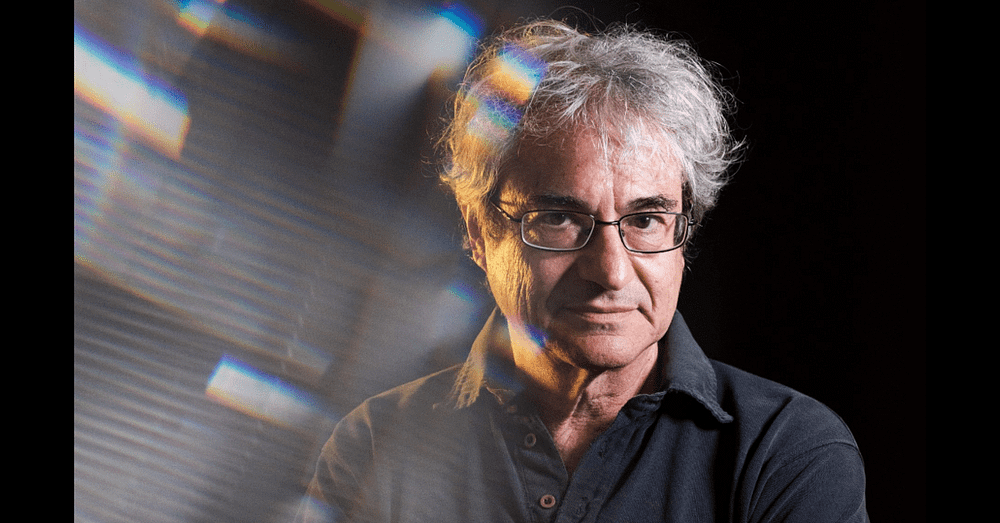
In the book What Is Religion? (published in 1902), the Russian writer Leo Tolstoy wrote the following words:
“What we call science today is merely a haphazard collection of disconnected scraps of knowledge, most of them useless, and many of which, instead of giving absolute truth provide the most bizarre delusions, presented as truth one day and refuted the next.”

Here we have Tolstoy openly yearning for what he called “absolute truth”. He strongly believed that science didn’t offer people absolute truth. However, religion did.
To move on to 2016.
The Italian theoretical physicist and writer Carlo Rovelli picked out those contemporary critics of science who’ve taken a very similar position to that of Tolstoy.
In his book Reality Is Not What It Seems, Rovelli writes:
“The answers given by science are reliable because they are the best available today.”
So science does offer us answers. However, it doesn’t offer us absolute answers. In other words, scientific answers are never “considered [] to be definitive”. Or, in Tolstoy’s own terms, they’re never absolute…
And a good thing too!
If scientific theories were deemed to be absolutely true, and if all its answers were definitive, then scientists wouldn’t “see them as open to improvement”…
And, again, that would be disastrous for science (or for scientific advance).
Rovelli goes into more detail on all this when he states the following:
“As every researcher working in every laboratory throughout the world knows, doing science means coming up hard against the limits of your ignorance on a daily basis — the innumerable things which you don’t know, and can’t do.”
Rovelli then provides his readers with a longish list of some of the present-day limits of science:
“We don’t know which particles we might see next year at CERN, or what our next telescopes will reveal, or which equations truly describe the world; we don’t know how to solve the equations we have, and sometimes we don’t understand what they signify; we don’t know if the beautiful theory on which we are working is right. We don’t know what there is beyond the Big Bang; we don’t know how a storm works, or a bacterium, or an eye — or the cells in our own bodies, or our thought processes.”
Tolstoy himself would have been shocked by these confessions — especially since they come from a well-known and respected scientist!
On the other hand, there’s still a degree of hyperbole in Rovelli’s own words. That’s said because we do, in fact, know a lot about our thought processes, the cells in our own bodies. We also know a lot about the Big Bang, about storms, bacteria, etc…
Sure!
It’s still the case that scientists as a whole don’t have the final word on any of these things.
Yet Tolstoy — for one — yearned for that final word… on everything. Hence he came down on the side of religion in his very own religion-vs-science war.
Tolstoy’s positions on science are relevant in other respects too.
For a start, it’s odd that scientists get it on the chin for believing that “they can explain everything”, as well as for not actually being able to do so.
Of course, there may be no actual contradiction here. It depends.
Some critics of science don’t like the belief (or idea) that science can — in principle — explain everything. Other critics (like Tolstoy himself) believe that science should explain everything. Thus, they become emotionally unhappy when it doesn’t do so.
Just to be clear.
There are two types of critic hinted at here:
(1) Those critics who find it audacious to even claim that science can “explain everything”.
(2) Those critics who actually want science to explain everything. However, they become deeply unhappy when they discover that it can’t.
It can be seen that these two types of critics can sometimes crossover.
If we return to Tolstoy’s words again.
David Berlinski’s Criticisms of Contemporary Science

In the passage above we had Tolstoy openly yearning for what he called “absolute truth”. He strongly believed that science didn’t offer people absolute truth: religion did.
However, let’s now quickly move from Tolstoy in 1902 to tackle the up-to-date example of the American writer and polemicist David Berlinski.
Berlinski has his very own Tolstoyan criticisms of contemporary science.
A good place to start is with Berlinski’s article ‘Was There a Big Bang?’. More particularly, take this literary passage (which can be found at the end of his article):
“Like Darwin’s theory of evolution, Big Bang cosmology has undergone that curious social process in which a scientific theory is promoted to a secular myth. [] Myths are quite typically false, and science is concerned with truth. Human beings, it would seem, may make scientific theories or they may make myths, but with respect to the same aspects of experience, they cannot quite do both.”
[See my ‘A Case Against Contemporary Theoretical Physics and Cosmology’.]
So, just like Tolstoy before him, does Berlinski yearn for absolute truth? And, in so doing, does he get science (at least as it was expressed by Rovelli earlier) drastically wrong? (Perhaps, instead, Berlinski is simply a contrarian and showman.)
To repeat:
(1) Is it that science is merely offering us (to use Tolstoy’s words again) “a haphazard collection of disconnected scraps of knowledge” under the disguise of truth?
(2) Alternatively, is (absolute) truth not even aimed at by scientists in the first place?
It seems that, in this case at least, science can’t win.
By many scientists’ own admissions, science never even attempts to offer us absolute truth. Indeed, according to some philosophically-inclined scientists, science doesn’t even offer us truth. (This is a tricky position that not many scientists themselves would accept.)
In tune with Rovelli, take the philosopher of science and Catholic priest Ernan McMullin (who died in 2011). He didn’t believe that the “acceptance of a scientific theory [also] involves the belief that it is true”. Moreover,
“to suppose that a theory is literally true would imply that no further anomaly could arise”.
And surely such a belief in literal truth (or in absolute truth) is counterproductive in science. [See my ‘Scientific Theories Don’t Need To Be True’.]
Yet, as Rovelli puts it, science is also attacked for “pretending to explain everything”, and also “for thinking it has an answer to every question”.
So did Tolstoy himself really want science to explain everything, and to answer all questions? What’s more, when he saw that science failed in these regards, did that prompt him to embrace religion instead?
Alternatively, was Tolstoy already committed to the absolute truths of religion long before he made his rhetorical criticisms of science?
In any case, let’s now take the example of the French mathematician, theoretical physicist and philosopher of science Henri Poincaré, who was certainly well aware of Tolstoy’s views on science. [See here.]
Henri Poincaré on the Critics of Science
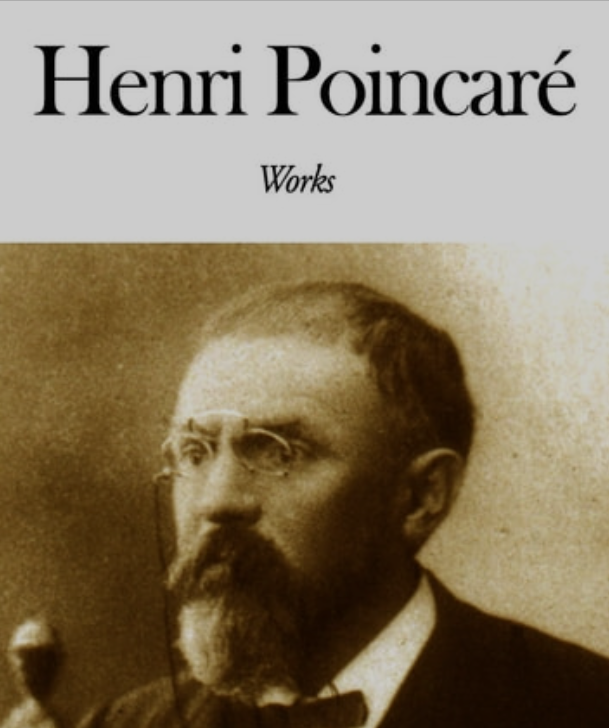
Henri Poincaré (roughly a contemporary of Tolstoy) can be seen to have been responding to positions such as Tolstoy’s when he wrote the following often-quoted words:
“The laity are struck to see how ephemeral scientific theories are. After some years of prosperity, they see them successively abandoned; they see ruins accumulate upon ruins; they foresee that the theories fashionable today will shortly succumb in their turn and hence they conclude that these are absolutely idle. This is what they call the *bankruptcy of science*.”
However, Poincaré then concluded by saying that this “scepticism is superficial”.
Why superficial?
Poincaré continued:
“The [laity] give[s] no account to themselves of the aim and the role of scientific theories; otherwise they would comprehend that the ruins may still be good for something.”
Just as I brought Tolstoy up to date by discussing Rovelli’s position on the contemporary critics of science, so lets now bring Henri Poincaré up to date by quoting the American biologist Jerry Coyne and his own response to Berlinski:
“[According to David Berlinski] [s]cience has no answers to ‘The Big Questions’ like ‘why is there something instead of nothing?’ (the answer that ‘it was an accident’ is fobbed off by Berlinski as ‘failing to meet people’s intellectual needs’, which of course is not an answer but a statement about confirmation bias); ‘where did the Universe come from?’; ‘how did life originate?’; ‘what are we doing here?’, ‘what is our purpose?’, and so on. Apparently Berlinski [like Leo Tolstoy] doesn’t like ‘we don’t know’ as an answer, but as a nonbeliever I’d like to know his answer! He has none; all he does is carp about science’s ignorance.”
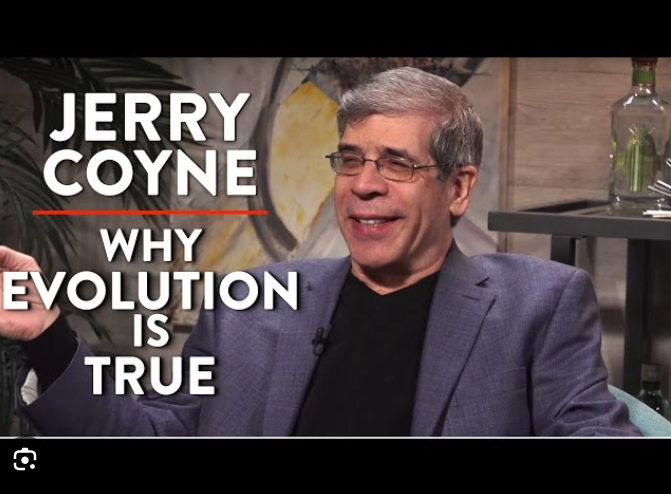
It’s useful to bring in the American science writer Kitty Ferguson here.
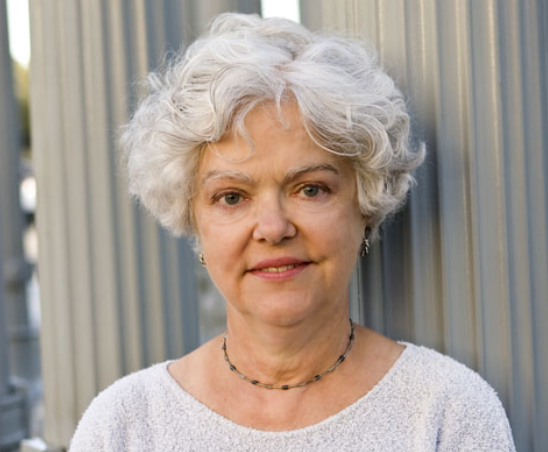
Ferguson is very sympathetic to religion. At the very same time, she also seems to have understood science far better than either Tolstoy or Berlinski when she wrote the following words:
“[S]cience doesn’t make any claim to have discovered the ultimate truth about anything. [Scientists] don’t speak of ‘the verdict of science’, but of ‘the standard model’. [] They speak of ‘approximate theories’. [] They speak of ‘effective theories’, which means that something we can work with for the present while knowing it isn’t absolutely and unequivocally correct.”
[These words can be found in Ferguson’s book The Fire in the Equations: Science, Religion and the Search For God.]
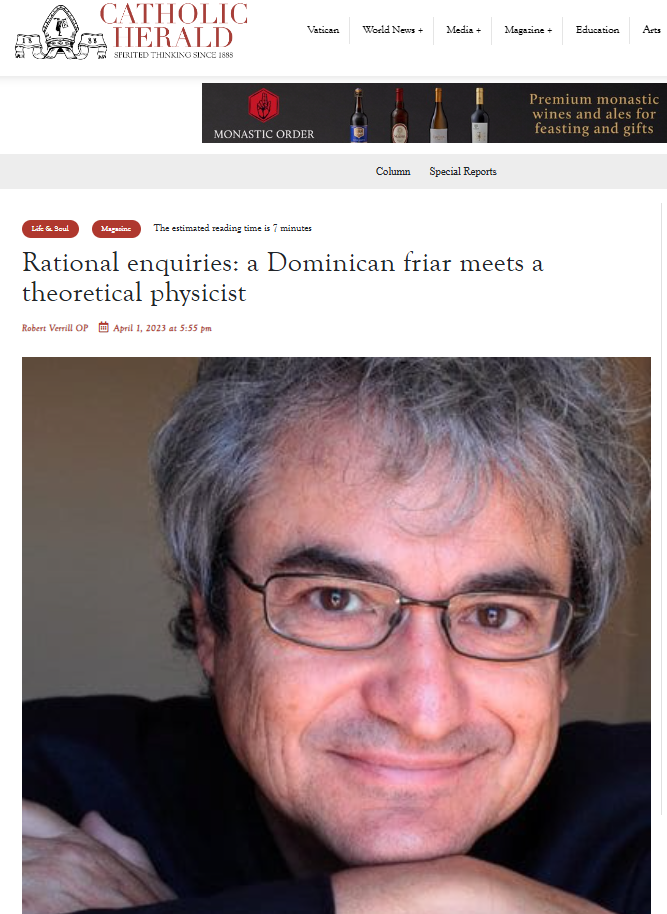
Finally, we can see that not only does Rovelli (in a manner of speaking) play down science, he’s also well aware of what at least some of its critics really want. In conclusion, he writes:
“There is always, in this world, someone who pretends to tell us ultimate answers. The world is full of people who say that they have The Truth. Because they have got in from the fathers; they have read it in a Great Book; they have received it directly from god; they have found it in the depths of themselves. There is always someone who has the presumption to be the depository of Truth, neglecting to notice that the world is full of *other* depositories of Truth, each one with his own real Truth, different from that of the others. There is always some prophet dressed in white, uttering the words, ‘Follow me, I am the true way.’”
So did Leo Tolstoy and David Berlinski yearn for someone “dressed in white” who would offer them absolute truth? And do many of the other critics of science (i.e., whom Rovelli refers to in his book) also yearn for “real Truth”?










No comments:
Post a Comment